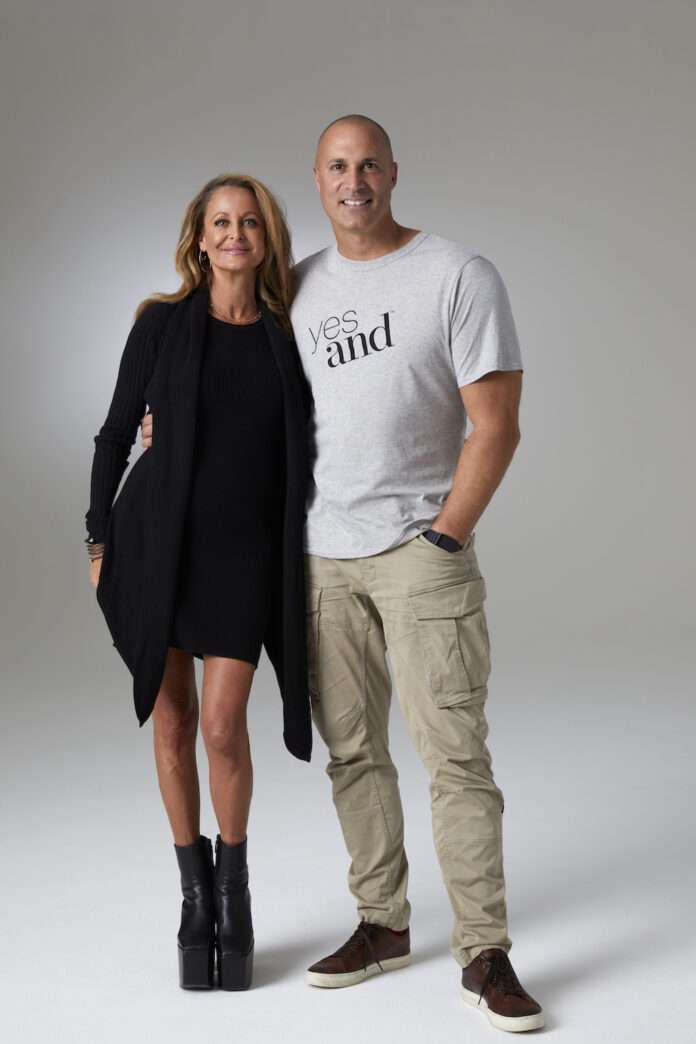Fashion photographer and former America’s Next Top Model judge Nigel Barker is now taking up the torch for sustainable fashion in a new partnership.
If you ask Marci Zaroff, founder and CEO of ecofashionCorp (EFC), about the future of the planet, she’ll tell you that there’s no time to waste in protecting it — its fate lies in our hands. And it was also fate, or, rather, destiny, she’ll say, that a chance meeting over the summer is now playing a key role in pivoting the fashion industry toward sustainable solutions.
Zaroff and Nigel Barker, the renowned fashion photographer, television personality, and founder and CEO of Studio NB Inc., met during a Fashion Innovation event over the summer.
“I heard Marci speak, Marci heard myself speak, and we decided to go and have lunch,” Barker told Ethos on a recent Zoom call. “And we sat there and brainstormed and just completely hit it off.”
That meeting was the beginning of what’s now a partnership aimed at fixing fashion’s many — and there are indeed many — issues. Barker has officially joined EFC as Celebrity Creative Director, Partner, and Board Advisor. He will work directly with EFC’s “Greenhouse of Brands,” to elevate their visibility and branding.
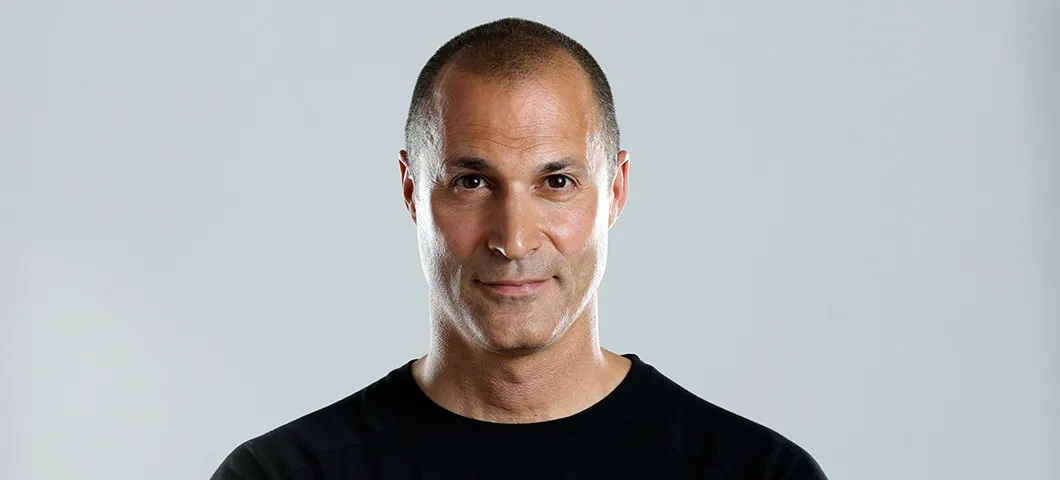
Zaroff and Barker have a lot in common; there’s the love for all things fashion, the love for their families — both are parents to two — and, they both share an urgent but extremely optimistic outlook about the state of the planet and fashion’s role in it.
Fashion’s footprint
The fashion industry is notoriously problematic, from sourcing to production, to the end-of-life garment waste. The industry has long lacked transparency, further complicating the path toward viable solutions.
Without transparency about emissions, particularly the harder-to-account-for Scope 3 emissions, the world’s leading climate accountability organizations have struggled to even pinpoint the sector’s total impact, putting its footprint at anywhere from two to ten percent of all global greenhouse gas emissions.
For Zaroff, and now Barker, the industry’s challenges are critical but they aren’t insurmountable. Zaroff, one of the industry’s foremost experts, brings decades of experience in sustainable fashion to the table; she was a pioneer in eco-fashion, claiming even to have coined the term itself.
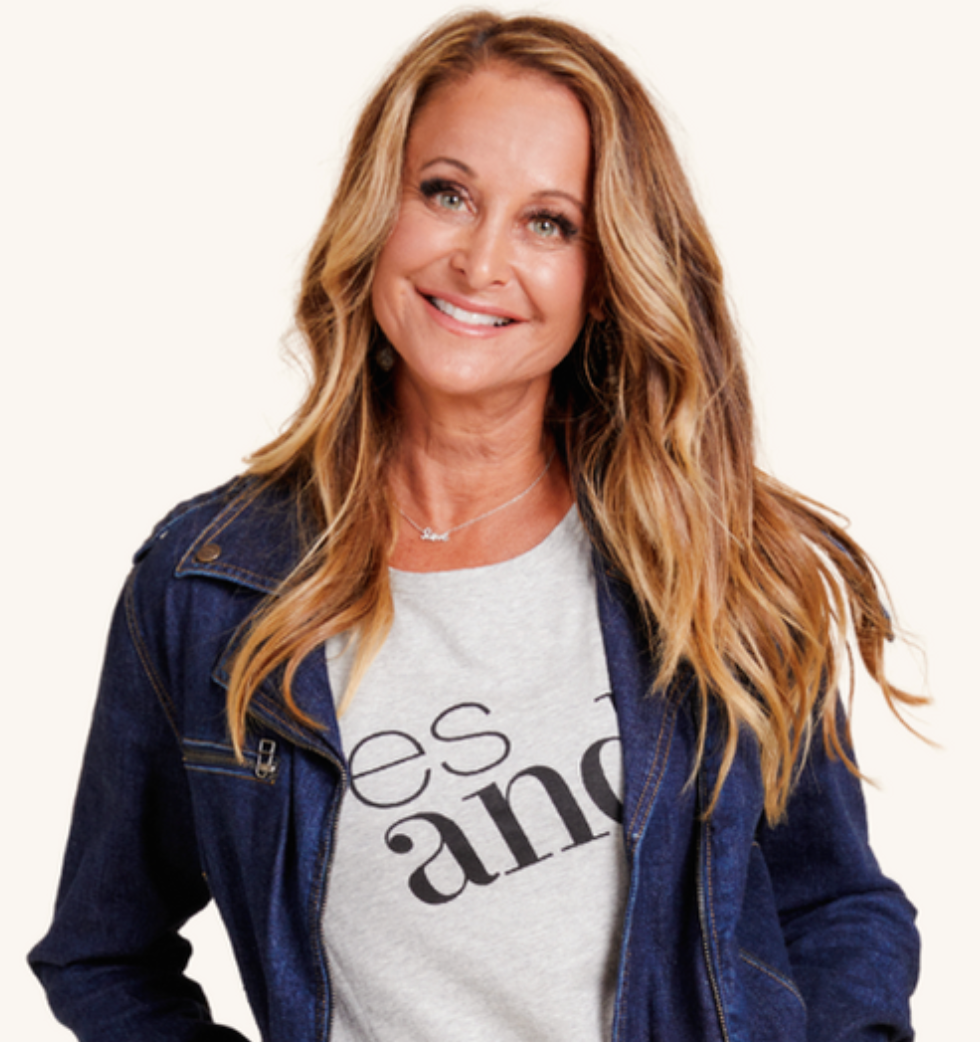
Her trajectory mirrors that of another sustainable fashion pioneer, British designer Stella McCartney, who has championed a more responsible and ethical industry since she launched her label more than two decades ago.
McCartney has consistently increased the sustainable materials in her collections since her launch; she has never used leather, feathers, fur, or skins in her collections — a move motivated by her vegetarian upbringing (her parents, Paul and Linda McCartney gave up meat in the 1970s).
The fashion industry, particularly the luxury sector, has long tacked the word “faux” onto animal alternatives like a scarlet letter. McCartney’s persistence, though, has brought the innovative alternatives category widespread attention, with alternative leather now taking a stronghold amongst some of the industry’s biggest labels including Gucci, Hermés, and Chanel, all of which have experimented with plant and fungi leather.

Zaroff’s companies — EFC is the parent company to sustainable fashion and homewares brands METAwear, Farm to Home, and YesAnd — have brought organic fibers to categories long before bedding brands like Coyuchi or Parachute were touting them, and long before organic t-shirts and undies were mainstays at labels like Pact.
She was also among the first to own the entirety of a sustainable supply chain, working with organic cotton growers directly in India and printing factories in the U.S. before most consumers had ever even heard the term “sustainable fiber.” The newest brand in her portfolio, YesAnd, introduced blockchain tracing in order to help consumers follow their garment’s journey from seed to skin, further advancing transparency into the notoriously closed windows of the fashion industry.
‘It’s climate crisis’
But sustainability isn’t just novelty for Zaroff and EFC; it’s the only lifeline for an otherwise condition-critical industry.
“There’s no business to be done on a dead planet,” says Zaroff. “This has to be front and center, and it’s no longer climate change,” she says, “it’s climate crisis.”
Fashion isn’t the biggest emissions producer on the planet, but it’s up there; it’s tied to so many problematic industries, from agriculture to industrial processing, to transport, to waste, that its impact is incredibly far-reaching, making its footprint about five times the size of the aviation sector.

The $3 trillion fashion industry is also responsible for 20 percent of freshwater pollution around the globe. Dyeing, tanning, and other chemical processes are highly toxic, putting human lives and ecosystems in danger. So is growing fabric; cotton, the darling of the natural fabrics industry, uses more pesticides than any other crop on the planet. “It’s a third of the world’s textiles,” says Zaroff. And she says it’s not just on our clothing, either. “Sixty percent of a cotton plant goes into the food stream for cottonseed oil that’s used in snacks and bread, and all kinds of foods,” she says. So fashion’s pesticide problem is very much a food issue, too.
Barker, like Zaroff, says the state of the environment is the most important issue on the planet right now. “Because without it, we don’t have a world to have any other issues with,” he says. “So it starts with that.”
Zaroff says opportunities abound in soil regeneration, a buzzy term of late, but one that has weight behind it. “What we take from the earth, we have to give back to the earth,” she says. But currently, two-thirds of the fibers produced are synthetic.
“Just look at what those synthetics are doing to our environment — they never biodegrade,” she says. Much of those fibers are ocean polluters, putting plastic microfibers into the waters than contaminate animals along the food chain. Plastic also inhibits the ocean floor’s ability to absorb CO2 by altering its pH levels. “At every touchpoint, we’re compromising our ecosystems through fashion,” Zaroff says.
‘”‘Sustainability is going to explode’
Even amid the reign of fast fashion behemoths like China’s Shein and the U.K.’s Boohoo, Zaroff and Barker are hopeful. Zaroff says fashion brands and retailers are beginning to recognize that younger generations are holding them accountable. And these younger generations are now armed with information and technology in unprecedented ways, making it harder for brands to avoid accountability.
“There’s a fundamental shift that needs to happen,” Zaroff says. “I’m someone who has put my money behind the fact that this fast-fashion boom will end, and that, ultimately, sustainability is going to explode exponentially, because it’s going to be our only option.”
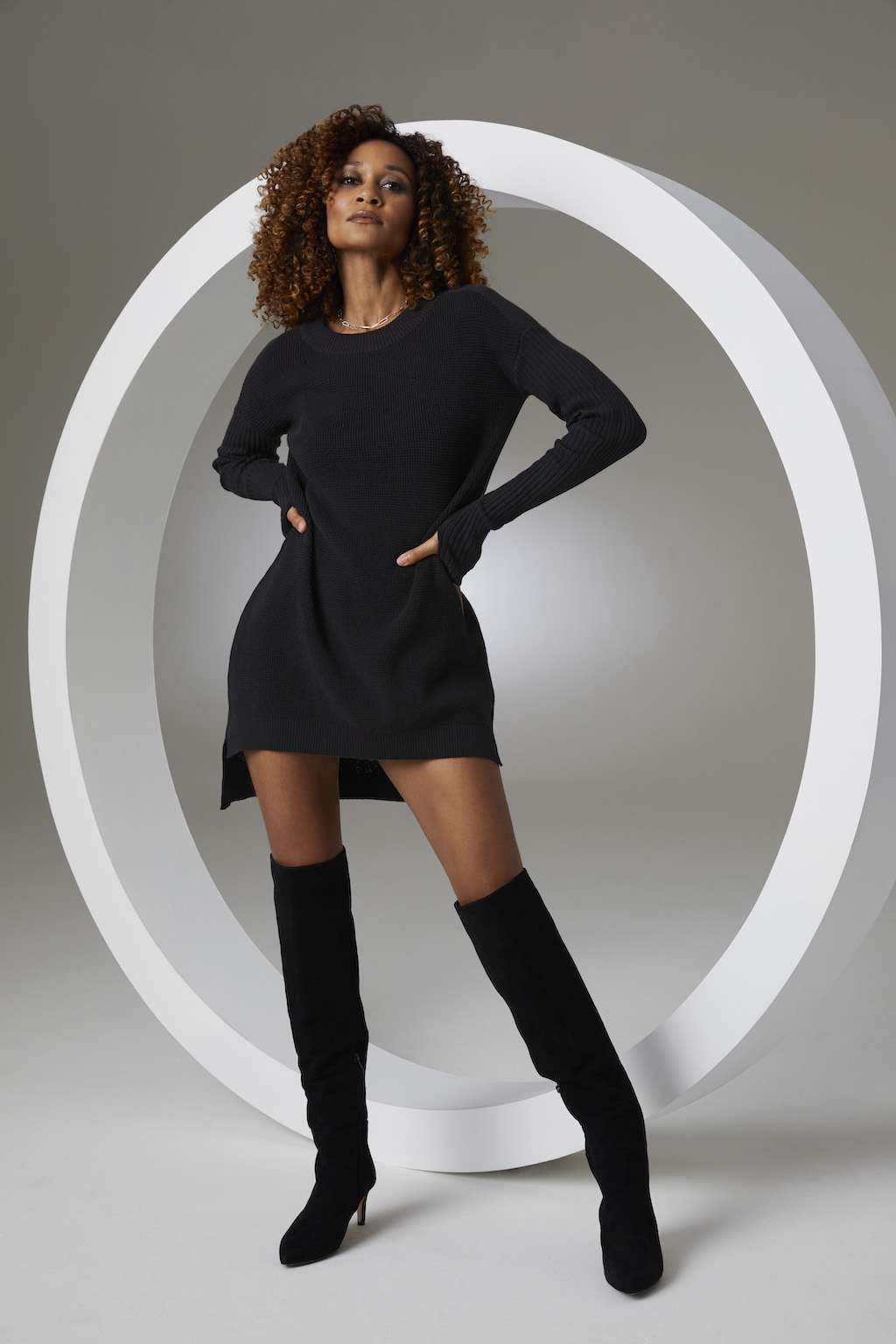
Zaroff says she’s seen it enough times that major organizations can fold almost overnight by not making critical changes to stay with the times. No brand, or industry, is invulnerable. “It’s not about staying ahead anymore,” she says, “it’s about not being left behind.”
And the industry is very much at a turning point, she says.
“So either you’re in business with us — and this is from a business standpoint, not just a moral standpoint — you’re either in or you’re out,” she says. “And if you’re not in, then you’re going to be behind the curve. Then, smaller businesses — businesses that were smart enough to get involved with sustainability and eco-fashion early enough — are going to be the winners. For these bigger companies, unless they get that, they’re going to suffer.”
And this is where Barker’s role is so critical. By bringing his visual storytelling to the brand, the goal is that it will ricochet throughout the industry, giving not only EFC’s efforts more visibility, but anyone in the space working to create a more sustainable and ethical fashion industry, a bigger platform.
A changing industry
Brands are indeed making progress. Danish luxury label Ganni has pivoted hard into sustainable materials. It also recently announced it’s turned its attention toward carbon insetting with solar and renewable energy projects at its European suppliers. LVMH, the world’s largest luxury group, has begun exploring lab-grown fur for its labels, including Louis Vuitton and Fendi. It’s also elevating deadstock through its platform Nona Source, which sells offcuts from its Maisons to smaller designers, reducing waste in the process.
There are scores of other examples of innovation from Ralph Lauren’s color-on-demand dyeing tech, to brands like Oliver Logan and DL1961 turning denim from notoriously one of the worst materials for the environment to one of the most sustainable.
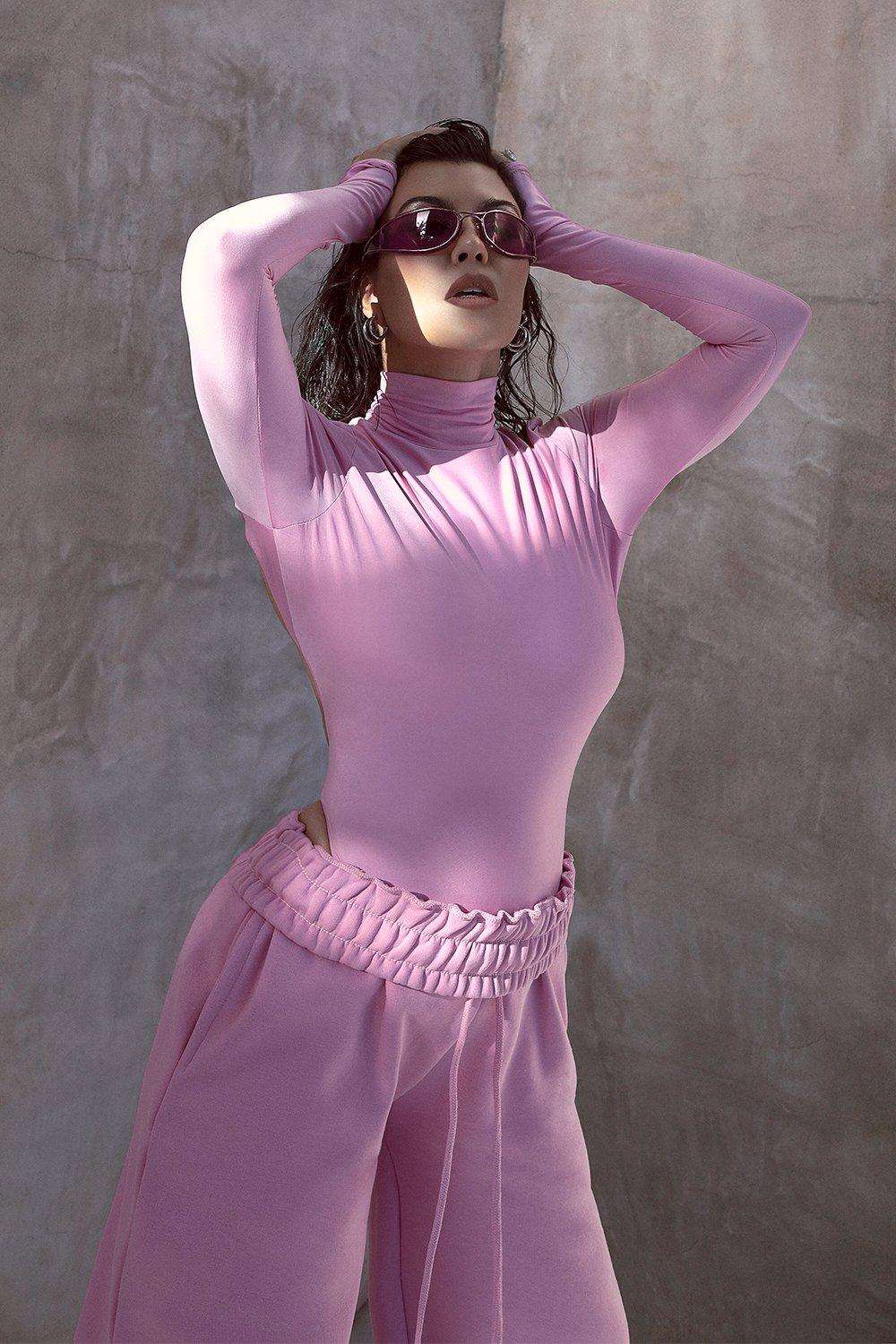
But despite progress, greenwashing is still rampant; Kourtney Kardashian was blasted for her recent partnership with British fast fashion giant Boohoo. “Greenwashing is a very serious risk to any brand or business,” Zaroff says. “So now they’re being watched.” But she says, the industry has to meet these big companies where they are, “we have to hold their hands and we have to help them because we need them at the table. We can’t change the fashion industry and exclude the mass of retailers.”
Brands like these have a tremendous impact. And as their consumers come to understand what’s greenwashing and what’s not, these surface attempts can lead to bigger and more impactful pivots. “It’s not going to happen overnight,” Zaroff says,” but the journey of 1,000 miles begins with one step.”
Wear the Love
One of the first steps for Barker and EFC is the company’s latest Wear the Love campaign, shot by Barker. The collection features nature-inspired, elevated essentials featuring organic cotton, Tencel, and low-impact dyes.
“I’m someone with two kids, and I’m someone that takes everything that I do very seriously,” Barker says. “You have to make a decision at certain points in your life, you have to decide where you’re who you’re going to work for, what they do ethically, and what difference and change that’s going to make in the world.”
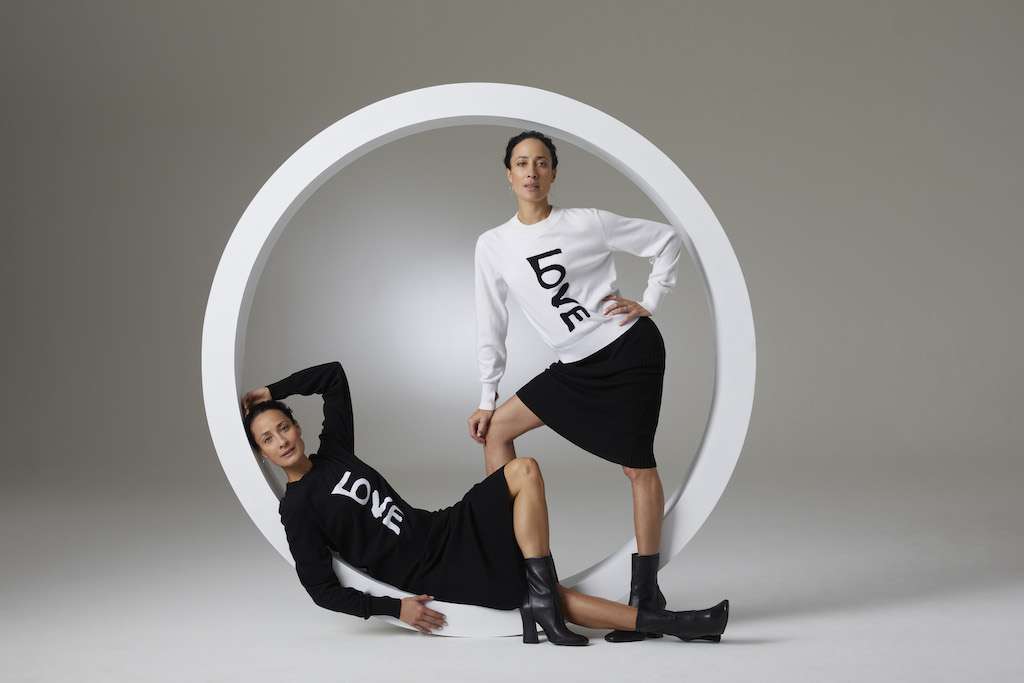
He says what’s so important about a campaign like this is communicating the values of sustainability and being environmentally friendly “at every touchpoint.”
Barker says it’s all about finding the right partners, “it’s finding the right models, understanding diversity and who our customer is. It’s really trying to be as diverse and as representative of the people as much as possible,” he says.
The industry has long had a representation problem, something that’s changed a lot in recent years, but still has a long way to go, especially when it comes to fostering a shift at the magnitude needed right now. It’s all hands on deck, Barker says.
“If we don’t get everyone involved and everyone interested,” Barker says, “it’s not going to work.”
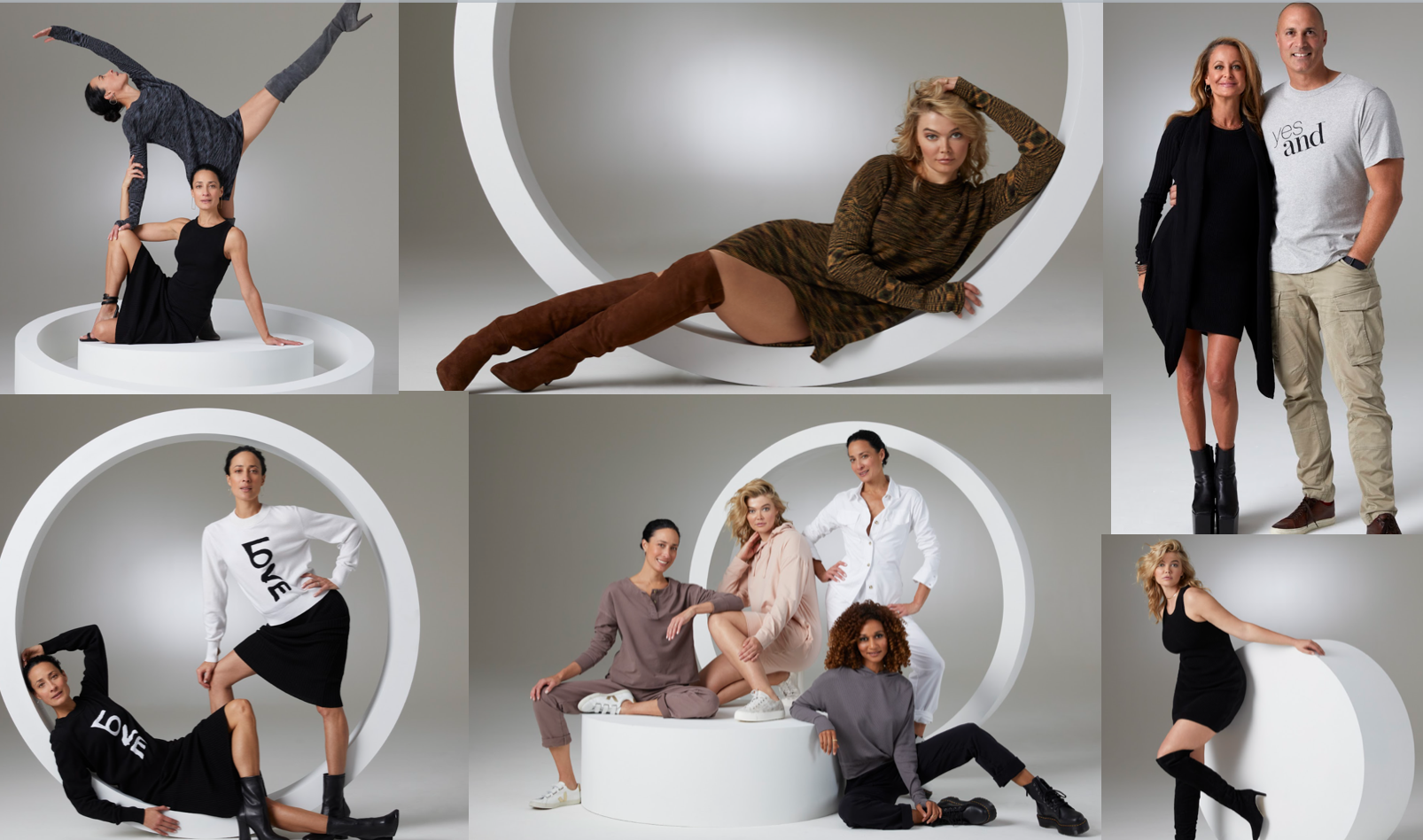
Related on Ethos:

